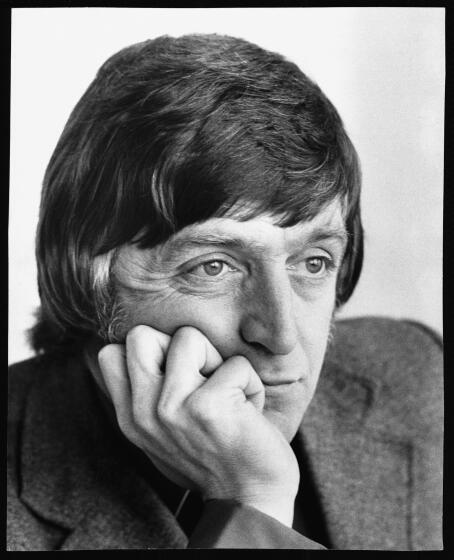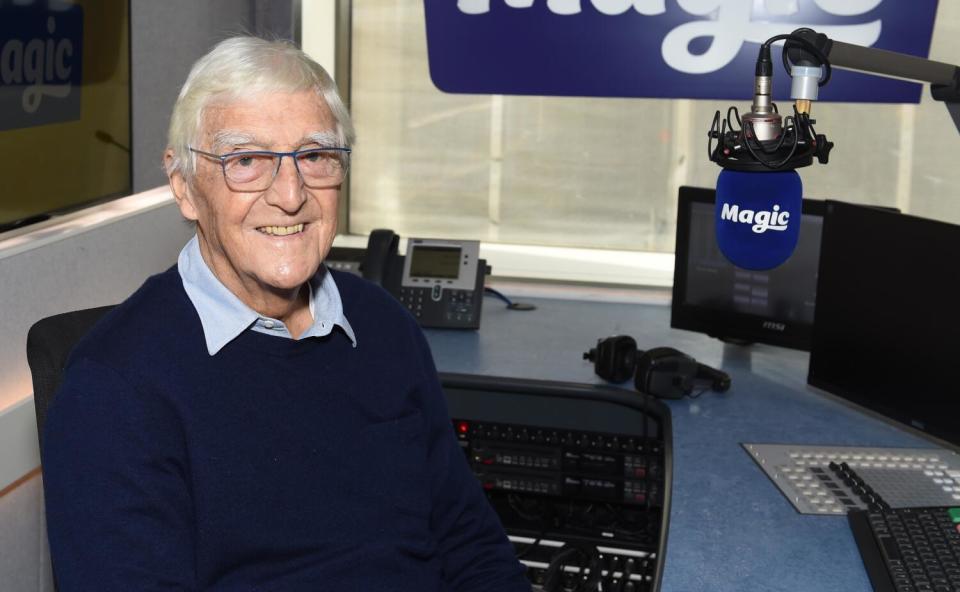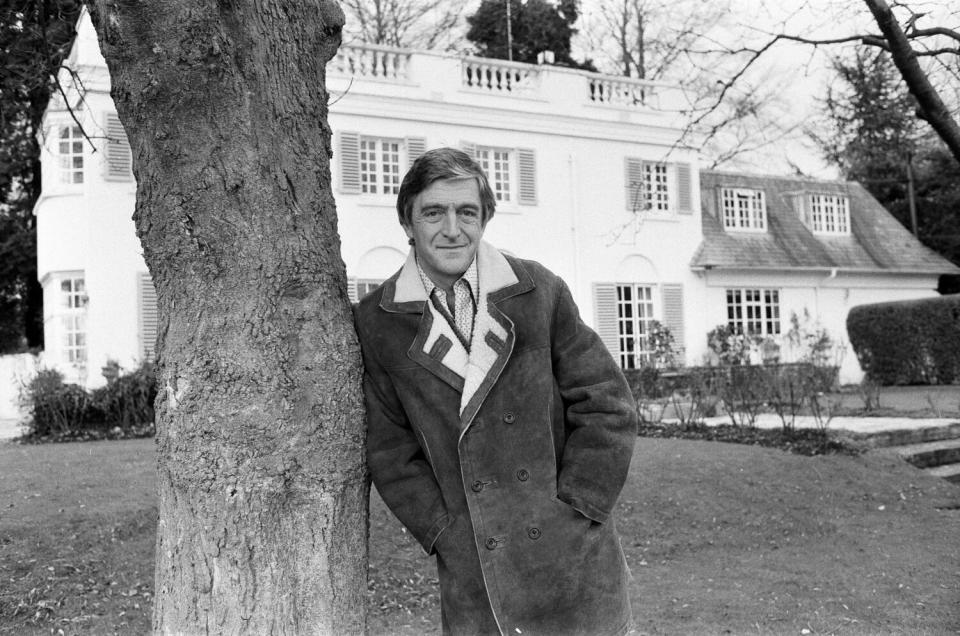American talk shows are mostly fluff. British TV titan Michael Parkinson reached higher
- Oops!Something went wrong.Please try again later.

If you are at all interested in the cultural history of the English-speaking world, and are a person with access to the Internet, your research is liable have led you at some point to Sir Michael Parkinson, British television interviewer, who died Wednesday at the age of 88.
In American media, his closest counterpart would be Dick Cavett, for the breadth and depth of his interviews, though their attitudes are dissimilar, Parkinson having had a background in print journalism and Cavett coming from comedy writing. And where Cavett was in his time a kind of rarefied taste, at least compared to other late-night interviewers, Parkinson, the son and grandson of miners, was a prime-time institution and national treasure, certified by a CBE and knighthood. The thousands of interviews he conducted over his career form an encyclopedia of his especially interesting times.
The figures who appeared on Parkinson's talk shows, which came and went from 1971 to 2007, include Kirk Douglas, James Stewart, Bing Crosby, Orson Welles, Fred Astaire, Robin Williams, Kenneth Williams (those who know, know), Peter Cook, Peter Sellers, Spike Milligan, John Cleese, Stephen Fry, Barry Humphries (as Dame Edna Everage), Richard Burton, Peter O'Toole, Paul McCartney, "Sunshine Boys" co-stars George Burns and Walter Matthau, Peter Ustinov, Billy Connolly, old friends James Cagney and Pat O'Brien, David Bowie, Elton John, Noel Gallagher, Madonna and a 96-year-old Salvation Army major. American subjects, faced with a different audience, sometimes seemed to speak more freely.
Read more: Talk show. Podcast. Live streaming. Everywhere you turn, people are talking
We are in an age of talk; the podcast boom has created innumerable hours of conversation on every subject imaginable, from celebrity to politics to vintage amplifiers. Still, there is a special level of sangfroid required to sit down with famous people in front of a camera and an audience and just … talk.
"You can't rehearse an interview," Parkinson said on "Good Morning Britain" late last year, promoting his book "My Sporting Life." "That's the joy of it all, that's the uncertainty of it all. It takes some doing to actually be frank in an interview, to actually ask the questions properly, and not try to be delicate around certain subjects… It's not just a question of reading the research."

Parkinson once called a chat show "an unnatural act between consenting adults in public." But where American talk shows have largely devolved to fluff, highly managed and obviously promotional, with pat questions and guarded answers, the hope in a show like Parkinson's was that something real might happen, that we might learn something, rather than merely be entertained — even as we are entertained. And it mattered, too, that the interviewer himself was interested.
There were famously tense interviews with a confrontational Muhammad Ali (who would return over the years, and whom Parkinson would call "the most extraordinary human being I ever met") in 1971, the first year of his first BBC series, and an uncomfortable Meg Ryan, in 2003, for which he later apologized. But these were exceptions. Overwhelmingly, Parkinson seemed to be enjoying himself, and never less than present. He laughed easily, but not ostentatiously, or obsequiously. Unlike some hosts, he did not make a show of himself — though he is not averse, when appropriate, to putting on a show.
In one memorable segment, he interviews Kermit the Frog about his relationship with Miss Piggy, for whom he confesses his own love ("You're in big trouble," says Kermit). It leads to a nose-to-snout scene between human host and porcine Muppet.
"Can I ask you just one deeply personal question," asks Miss Piggy, turning the tables. "Is that a toupee?"
"If things go right," Parkinson replies, "you might learn the truth later on."

This story originally appeared in Los Angeles Times.

